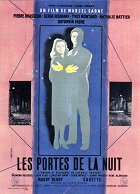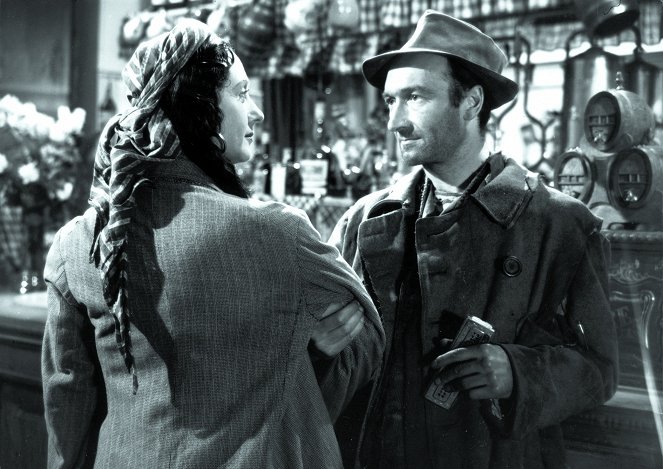Réalisation:
Marcel CarnéScénario:
Jacques PrévertPhotographie:
Philippe AgostiniMusique:
Joseph KosmaActeurs·trices:
Pierre Brasseur, Serge Reggiani, Yves Montand, Nathalie Nattier, Raymond Bussières, Sylvia Bataille, Dany Robin, Jacques Perrin, Saturnin Fabre (plus)Résumés(1)
Durant une nuit de février 1945 à Paris, Jean Diego se rend chez la femme de son copain, Raymond Lécuyer, pour lui annoncer la mort de son mari devant le peloton d'exécution des occupants nazis. Or, Raymond est bel et bien vivant. Un clochard, qui se présente comme étant le Destin, annonce à Jean qu'il va rencontrer, dans les heures à venir, "la plus belle fille au monde". (Pathé Films)
(plus)Critiques (1)
One possible definition of political realism could be that it is a somewhat idealized reality free from disturbing elements, accompanied by mood music and poetic stylistic dialogues. Perhaps the closest example of it in modern French cinema was approached by Jean-Pierre Jeunet in his popular and critically acclaimed Amelie. Poetic realism, therefore, somewhat magically "enhances" the present and enchants the viewer. However, Gates of the Night had the opposite effect on the audience when it premiered. Although Carné retouched the post-war face of Paris with his imagery and dialogues, it was not enough for contemporary viewers who wanted to see different content and hear stories full of heroism and exemplary punishment of traitors. Carné's portrayal of swindlers and cunning turncoats brought unwanted tones into the discussion of that time and showed more than the French were willing to tolerate at the time. For the director, it was an unpleasant failure, and the film quickly disappeared from movie theaters. Today, it is a matter for film clubs and late-night broadcasts on TV art channels. However, it can offer viewers an impressive example of magical realism in the European concept. Overall impression: 75%.
()

